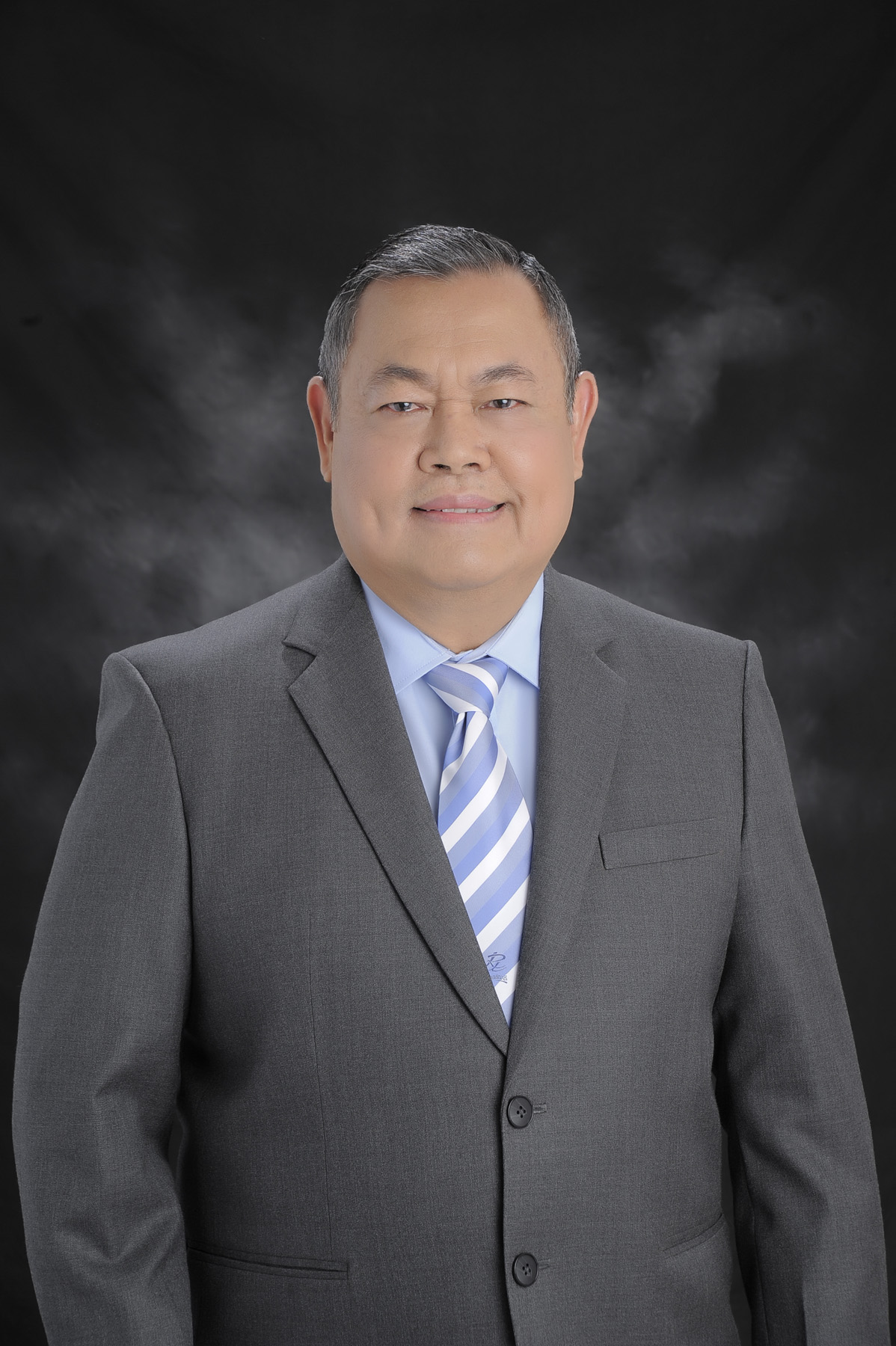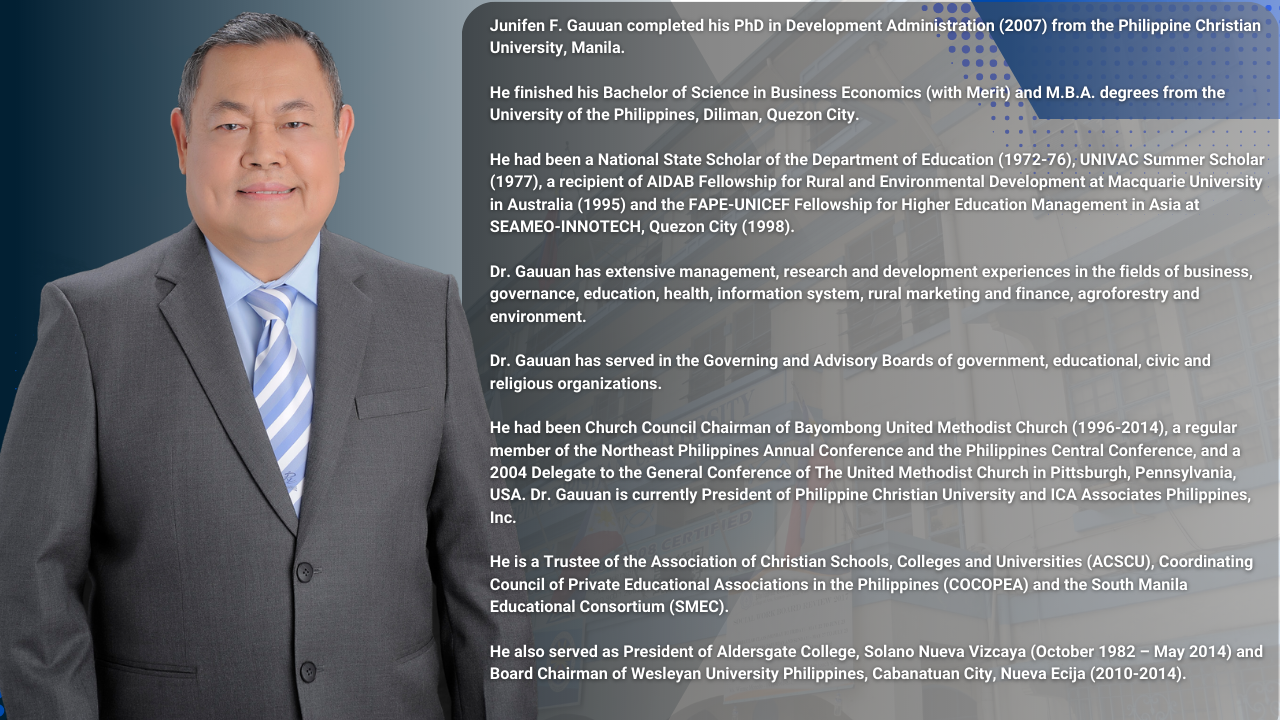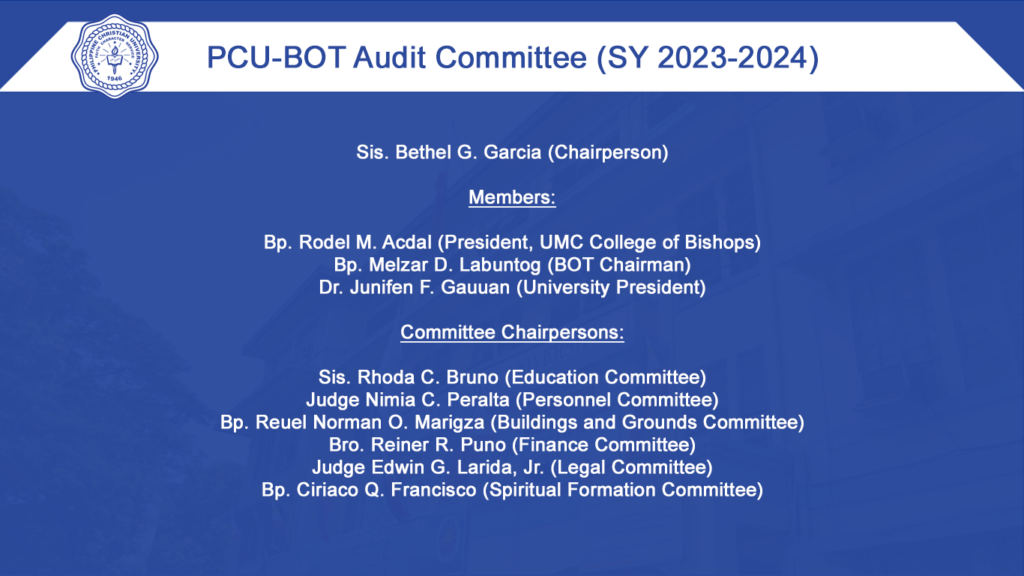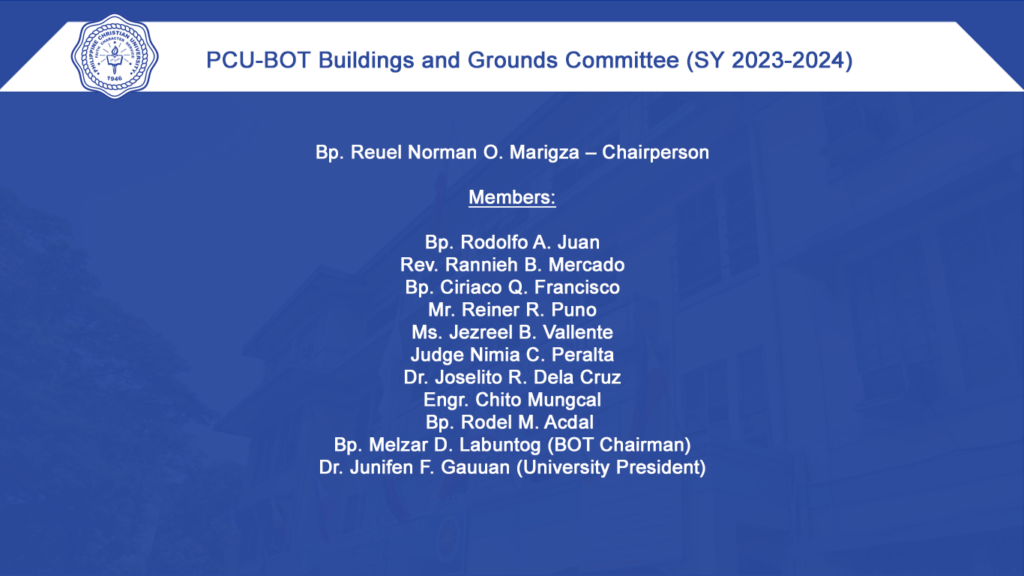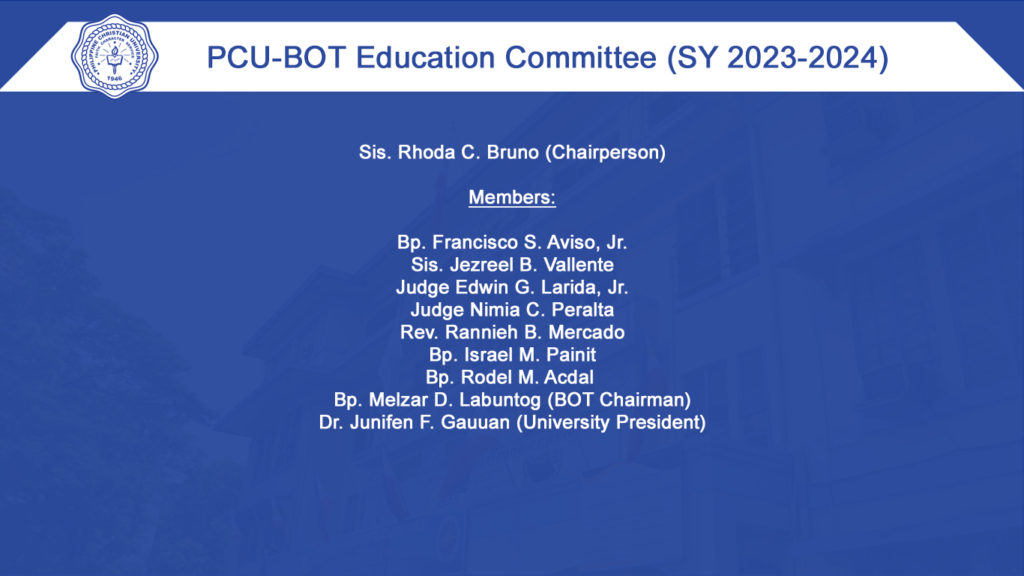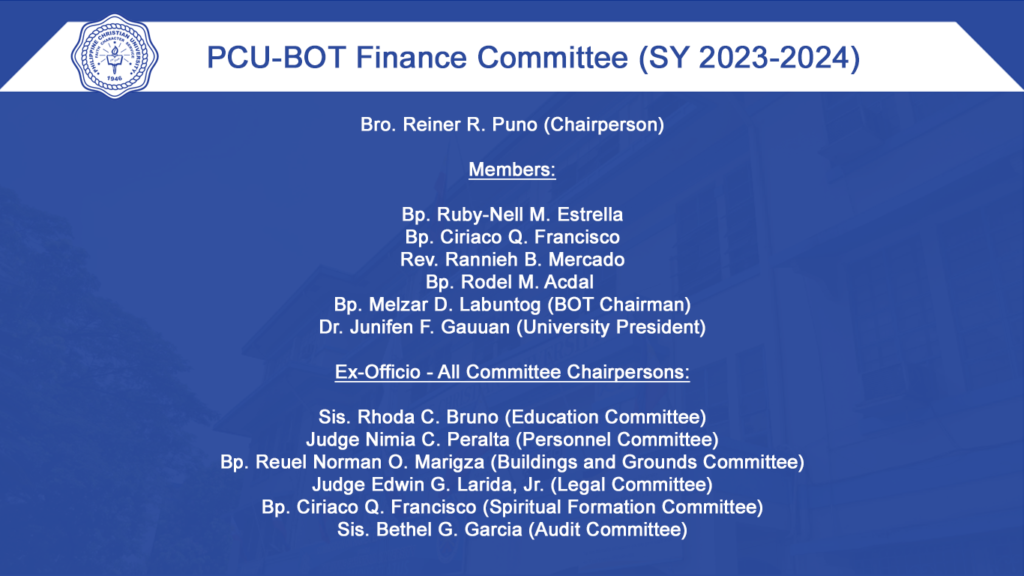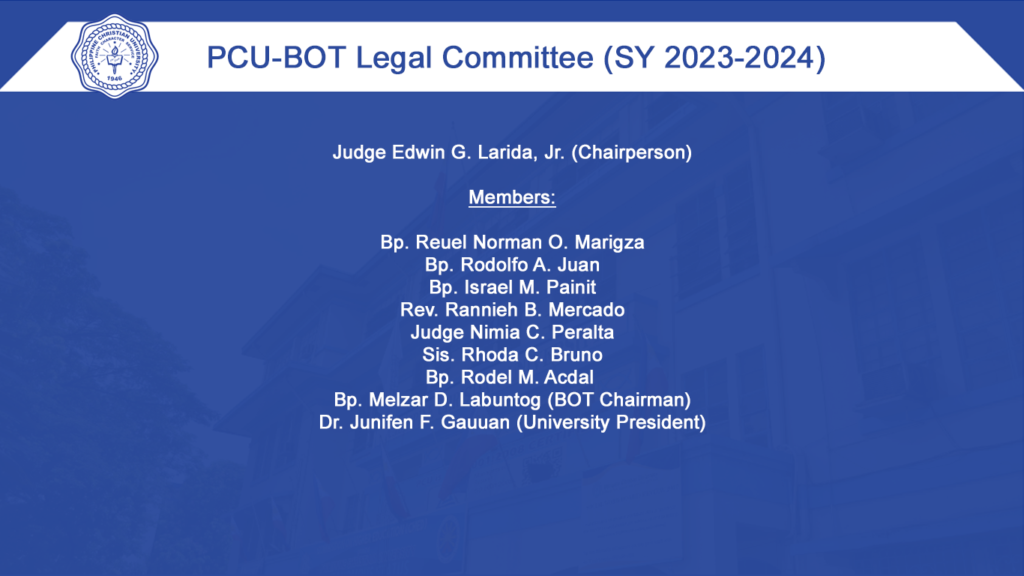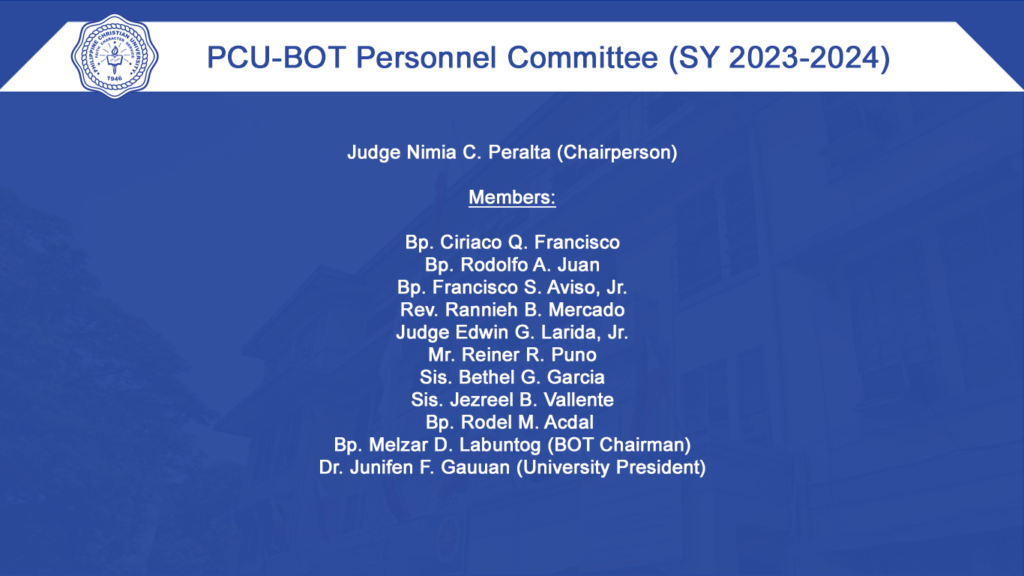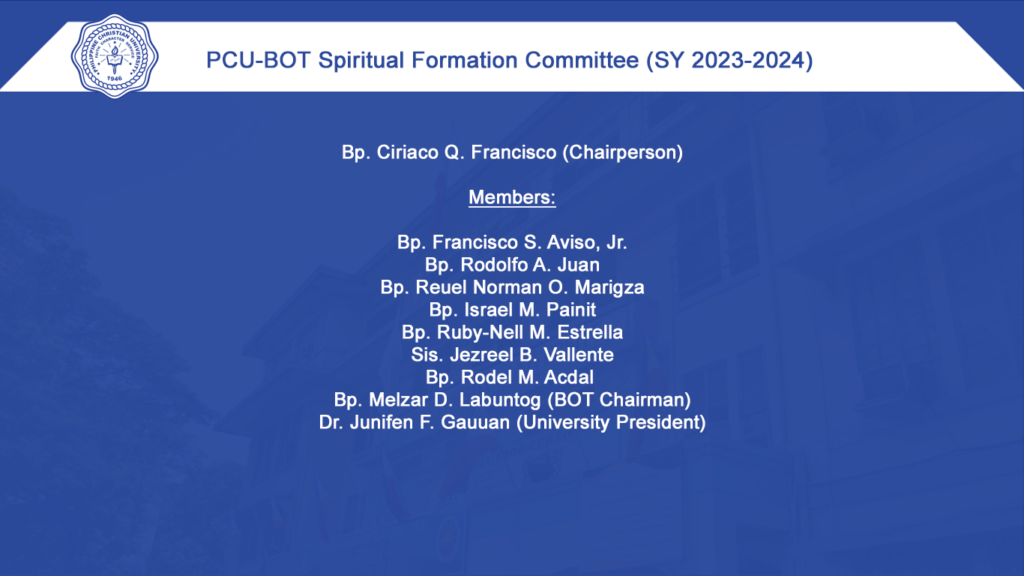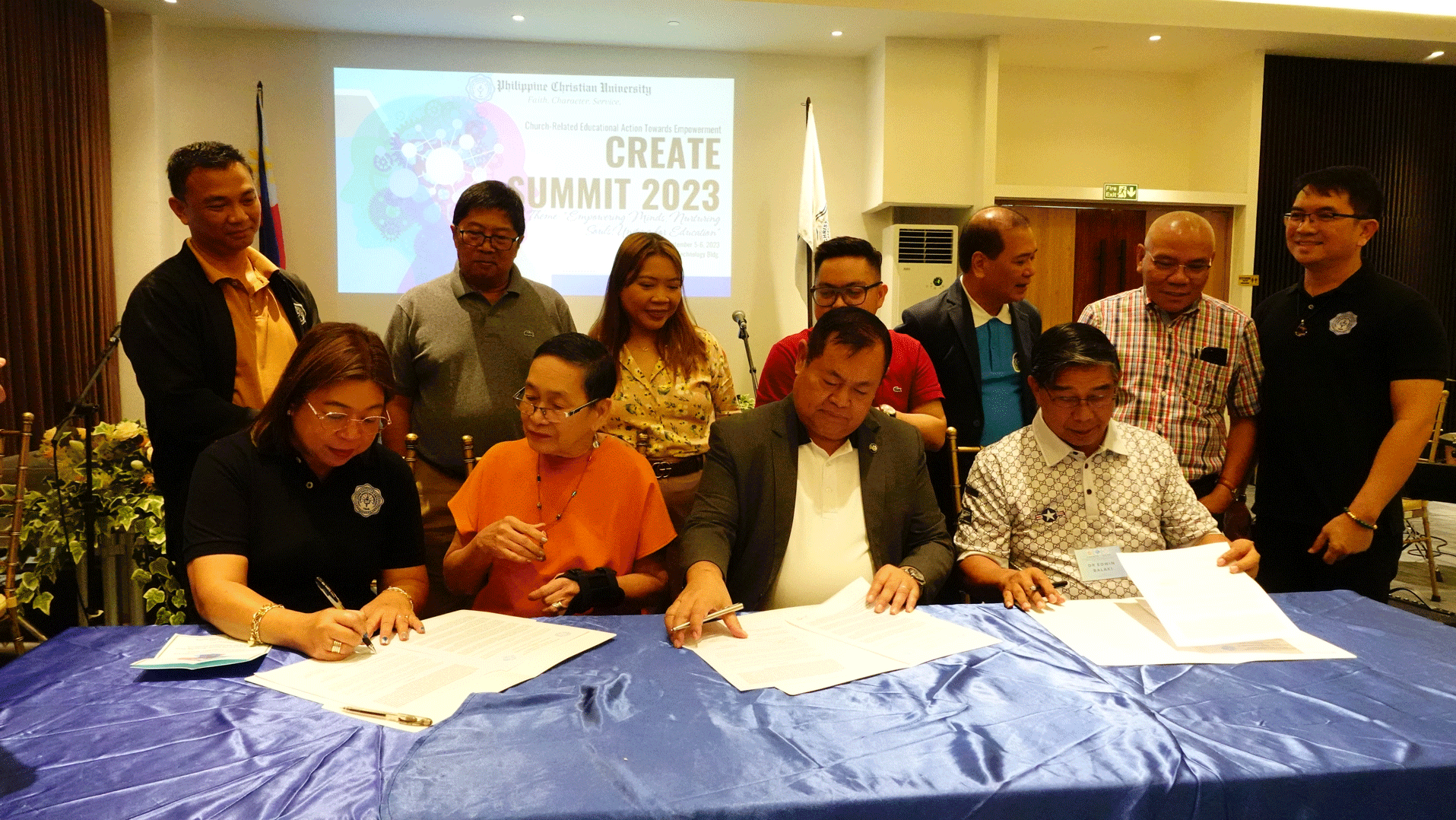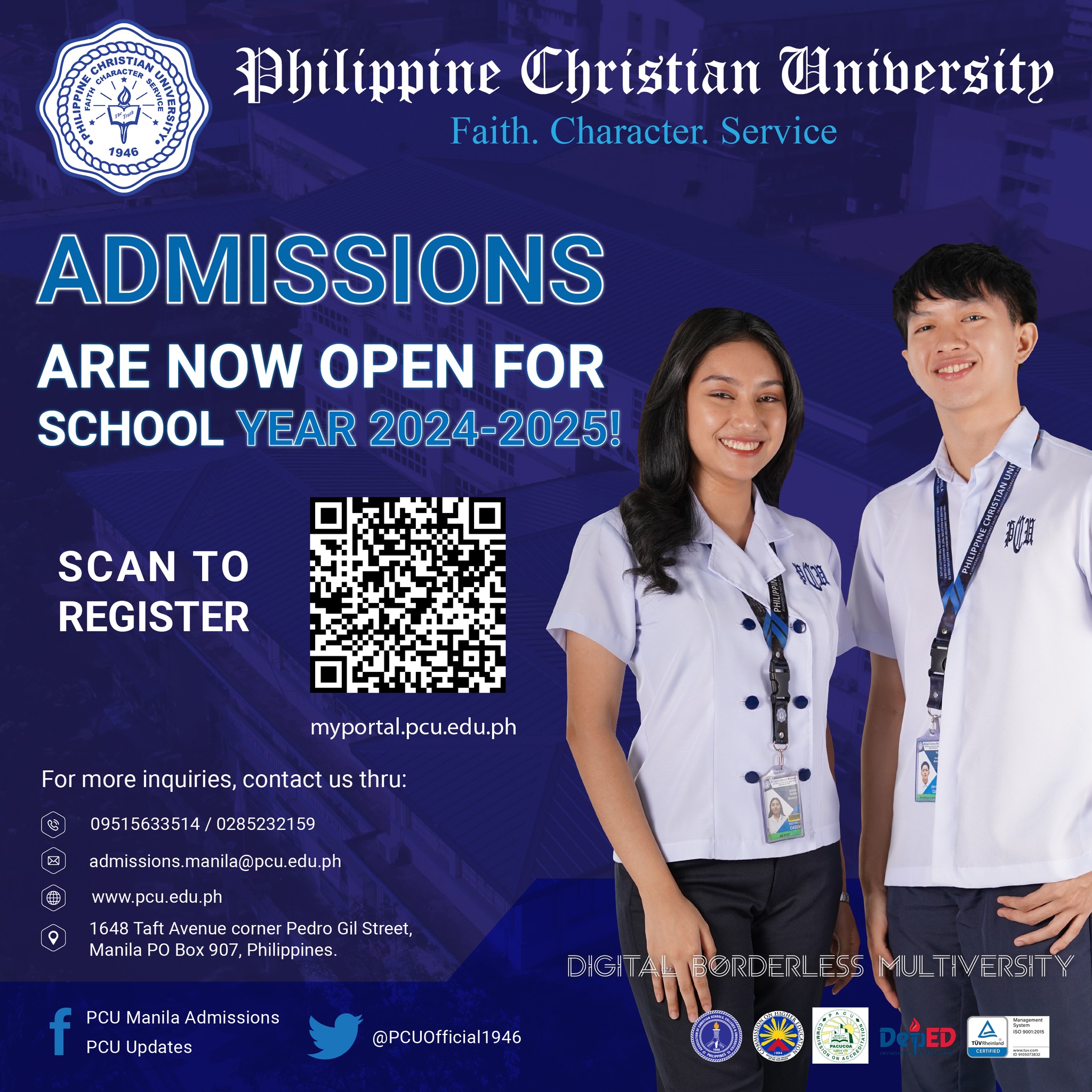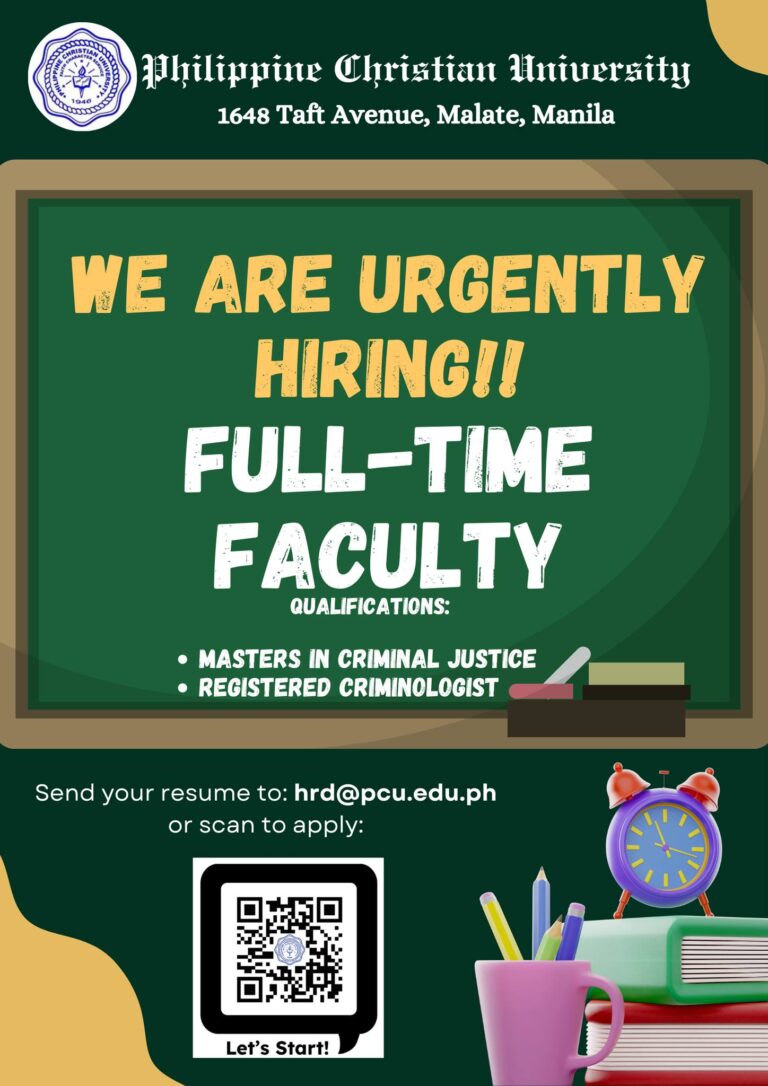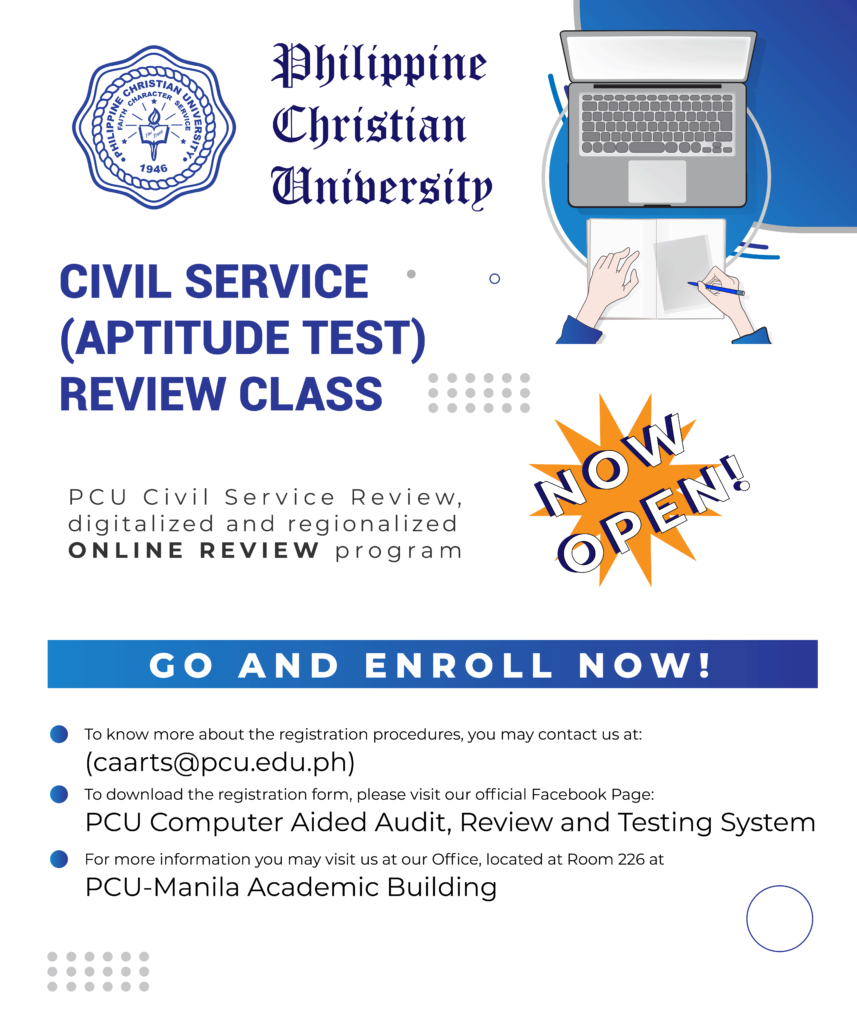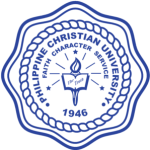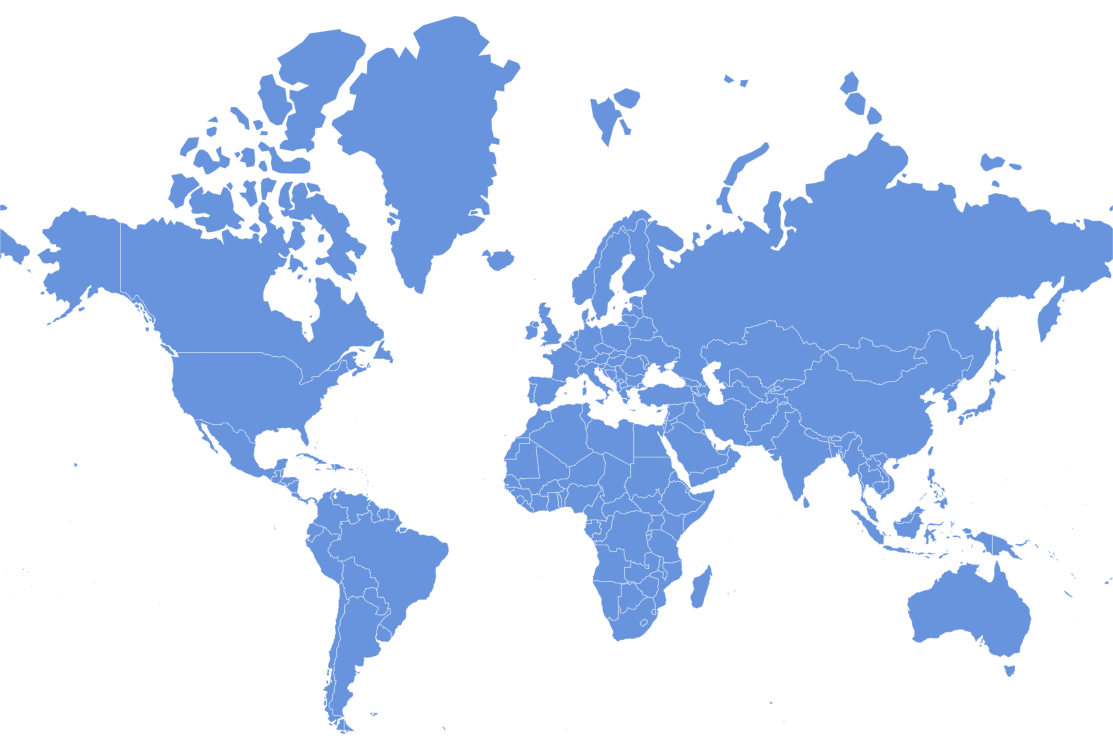“A University that
nurtures FAITH,
transforms CHARACTER
and inspires SERVICE!“
Vision
A distinctive Christian University integrating Faith, Character and Service, transforming global learners for enlightenment, leadership and human development in the 21st Century
Mission
Philippine Christian University, an institution related to The United Methodist Church and United Church of Christ in the Philippines, commits itself to deliver high quality education imbued with the formation of Christian character, responsive to the needs of people, and making them responsible leaders and stewards, fostering inter-faith and international goodwill and understanding.
PCU HYMN
Fulfilment of our yearning
For Christian higher learning,
To thee our eyes are turning PCU;
Thy blue and silver banner
In firm unchanging manner
Is steadied by unshaken loyalty
REFRAIN:
Thine is love of man in service tendered,
Thine is love of God in worship rendered,
Thine is wholesome growth in Christ engendered, Alma Mater, PCU.
History
In 1945, Bishop Edwin F. Lee of the United Methodist Church (UMC) envisioned a Christian college in Manila. On October 6, 1946, Laymen of the Evangelical Association of the Philippines agreed to the establishment of the college. Their initial Board of Directors Was composed of Atty. Juan Nabong, Sr., Dr. Mateo Occena, Dr. Emilio Javier, Dr. Mauro Baradi, and Mr. Gerardo Armonio.
On January 11, 1947, the Articles of Incorporation was registered with the Securities and Exchange Commission. The original name of the institution was Manila Union University but this was later changed to Philippine Christian College.
Dr. Roxy Lefforge, an American missionary, was the first Executive Dean.
Dr. Emilio Javier (1952-1958), an outstanding layman of the United Church of Christ in the Philippines (UCCP) was elected as the first President. Under his leadership the institution expanded the ecumenical efforts in education. The Union High School of Manila and Union Elementary School founded by the Presbyterian Church in 1919 and 1946 respectively became part of PCC in 1947. The college added a degree course in Nursing when the Mary Johnston School of Nursing, founded by the Methodist in 1907, affiliated with PCC in 1953.
Dr. Juan Nabong, Sr. (1958-1969), a Methodist layman, was the second President. Under his Administration, a four-storey concrete building was constructed in 1960 beside the UTS building on Taft Avenue. A year later, a two-storey building for the Elementary school was constructed in Vasquez Street, Malate. The Ellinwood College of Christian Education was merging with the Philippine Christian College in 1968 and its curricular programs integrated with the programs of the College of Education. Dr. Lino Q. Arquiza (1969-1988), a UCCP Educator, was the third President. Under him, the growth and expansion of PCC was steady and impressive. In 1976, PCC acquired its University status and Philippine Christian University. A highlight of the efforts at cooperation came during Dr. Arquiza’s term when the Union Theological Seminary and PCU merge in 1978. with the merger, the Philippine Christian Center for Learning (PCCL) was born.
The merger enabled PCU to expand its offerings in the 97-hectare UTS campus, 36 kilometers south of Manila.
With this move, Philippine Christian University and Union Theological Seminary, established an ecumenical relationship that is more expansive and more coordinated. Institutional cooperation extended to non-protestant schools when in 1972, PCU and DLSU joined hands in a resource-sharing program. This move ushered in the formation of five-school Inter-Institutional Consortium (I-IC) in 1975 composed of De La Salle University, St. Scholastica’s College, St. Paul’s College of Manila, Philippine Normal College and Philippine Christian University. The Consortium enjoys the full support of the United Board for Christian Higher Education in Asia
With the untimely demise of Dr. Arquiza, PCU had a succession of two able and dedicated Officers-in-Charge in the persons of Justice Crisolito Pascual (1988) and Dean Betty I. Molina (1989).
In 1990, the Board of Trustees elected Dr. Carlito S. Puno (1990-2000), a prominent Methodist lay leader, as the fourth president of the university. The new president of the university provided a new vision and a creative and dynamic leadership for the university. PCU became an active participant in the globalization of education. Under his leadership the university aggressively pursued a program expansion through the off-campus programs and the overseas institutional linkages.
Dr. Oscar S. Suarez, a Princeton University-educated UCCP pastor, became the fifth president of PCU. November 2008 – Appointed a Management Committee comprised of: Atty. Felix D. Carao Jr. (chairperson), retired Justice Wenceslao I. Agnir and Dr. Quintin S. Doromal. December 2013 – Election of Atty. Felix D. Carao Jr. as the 6th president of the University and the reconstitution of the Board of Trustees.
The PCU Board of Trustees elected Dr. Junifen F. Gauuan, a United Methodist layman, as the 7th president of the University. May 2017 – the Commission on Higher Education (CHED) granted Autonomous Status to PCU.
Today PCU had grown into an institution responsive to national needs through its expanded and relevant curricular offerings.

